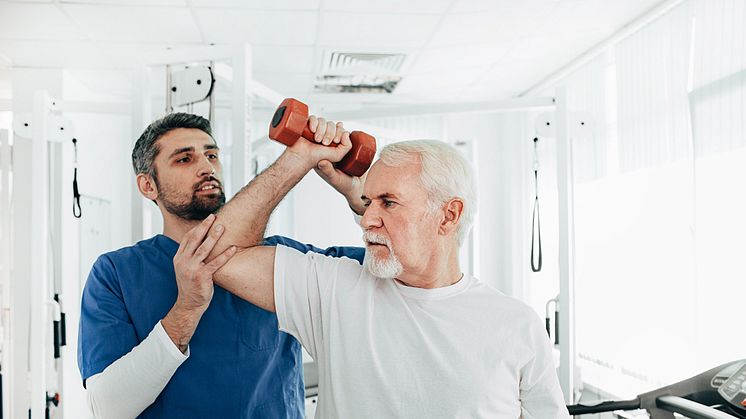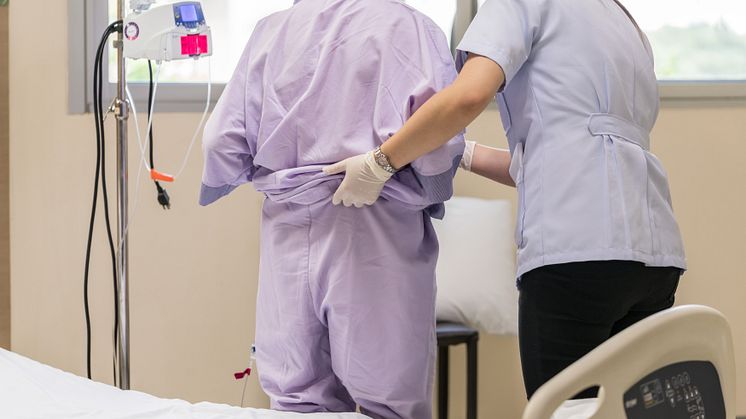
Press release -
Exercise can reduce side effects of prostate cancer hormone therapy
A leading expert in how exercise can help improve quality of life for cancer patients and survivors has published his latest research showing the benefits exercise can bring to men with advanced prostate cancer.
John Saxton, Professor in Clinical Exercise Physiology in Northumbria University’s Department of Sport, Exercise and Rehabilitation undertook research with 50 men who were due to begin a course of hormone therapy to treat prostate cancer.
The treatment, known as androgen deprivation therapy or ADT, can have a range of adverse side effects including weight gain and an increased risk of heart problems.
Professor Saxton and his team were keen to find out if exercise could help to reduce these side effects.
He worked with clinicians and patients from the Norfolk and Norwich University Hospital in the three-month study. Half of the patients received the hormone treatment without exercise, while the other half received the hormone treatment and took part in two supervised exercise sessions a week for three months at the University of East Anglia (Norwich Medical School), where Professor Saxton also holds an Honorary Professorial Fellowship.
At the end of the study, the researchers found that a three-month programme of aerobic and resistance training prevented adverse changes in the patients’ cardiopulmonary fitness and fatigue levels compared to those who had not exercised.
They say that a prescription of short-term exercise for patients with advanced prostate cancer could help to reduce the side-effects of hormone therapy and their findings have been published in the British Journal of Urology International (BJUI).
Professor Saxton explained: “Structured exercise programmes have much to offer people living with and beyond common cancers. Hormone treatments for prostate cancer are known to have undesirable side-effects, which increase a man’s susceptibility to cardiovascular disease.
“This research shows that some of the harmful side-effects of hormone therapy are reduced in men who begin to exercise regularly around the same time that these drugs are prescribed.
“Our findings have important implications for the quality of prostate cancer survival.”
Professor Saxton is currently co-leading a major national research trial to see if patients can benefit from a structured exercise programme before and after major abdominal surgery for bowel cancer. The trial, which is funded by the National Institute of Health Research is scheduled to recruit over 1,100 patients at more than 20 hospitals across the country.
He is also co-leading a study funded by Yorkshire Cancer Research aimed at helping breast cancer patients achieve and maintain a healthy weight following treatment to reduce their risk of the disease recurring.
His research was recently featured in a report by The Physiological Society and GuildHE into the contribution that sport and exercise sciences makes to society in the UK.
‘Exercise-induced attenuation of treatment side-effects in patients with newly diagnosed prostate cancer beginning androgen-deprivation therapy: a randomised controlled trial’ is published in the British Journal of Urology International (BJUI).
Topics
Categories
Northumbria is a research-rich, business-focused, professional university with a global reputation for academic excellence. To find out more about our courses go to www.northumbria.ac.uk
If you have a media enquiry please contact our Media and Communications team at media.communications@northumbria.ac.uk or call 0191 227 4604.








